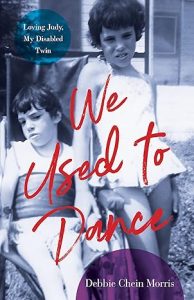The Context of Writing in My Life by Debbie Chein Morris
The Context of Writing in My Life
by Debbie Chein Morris
 From time immemorial, people have had the desire and the need to write. Even before modern-day alphabetic letters were created, before paper and pen, pictographs lined the walls of caves. Ancient tools were used to carve pictures into stone so that stories could be told. Over the millennia, writing has become simplified in the tools we use and we are able to share written works by merely clicking buttons; but documenting events and telling tales is as important as it ever was.
From time immemorial, people have had the desire and the need to write. Even before modern-day alphabetic letters were created, before paper and pen, pictographs lined the walls of caves. Ancient tools were used to carve pictures into stone so that stories could be told. Over the millennia, writing has become simplified in the tools we use and we are able to share written works by merely clicking buttons; but documenting events and telling tales is as important as it ever was.
As an early childhood educator in America, I always felt it was my job to instill in my pre-school and kindergarten students not only a love of reading, but confidence in their ability to write. Drawing often came first and with it, the idea that pictures can tell a tale. Modeling for them the process of writing down one’s thoughts on paper, they were encouraged to do the same. Some did not yet know how to form letters and were reassured that squiggly lines could represent their words. Some knew only the letters in their name, and would repeat these in long strings of letters representing their stories. Eventually, they would begin to understand that specific letters have corresponding sounds and phonetic writing would begin.
Generally beginning with initial consonants, they would soon add final consonants and, as their skill progressed, add the medial sounds. Most didn’t yet have the concept of word, and spacing needed to be taught. Most did not understand that stories were made up of sentences and when punctuation was introduced, periods filled the child’s page. Always encouraged to relay their story, the children would point to their words and “read” what they had written. I will always remember one little boy who simply stared at me when I asked him to read his story to me. I tried again, pointing to his words, and asking him to tell me what he had written. He continued to stare blankly. After another attempt on my part, he finally looked at me and slowly whispered, “I don’t know how to read!”
Another of my favorite memories is of my oldest son at age three, walking around the house with a little note pad, writing down his thoughts and observations. He didn’t understand the rules of spelling, but he knew some letters and understood that those letters could be used to express his ideas.
For me, writing began when I started school and learned to form the letters of the alphabet. I view that writing as functional writing, providing my teachers with what they wanted to see. As I progressed in the grades, I was always notoriously bad at multiple choice exams, struggling with what the question really meant and usually reading too much into it, resulting in a wrong answer. Essay questions were much easier for me, as I was able to elaborate and share my thinking. As I grew, my writing became more personal and I began to enjoy being able to put my thoughts down on paper.
Diary-writing was popular in my childhood and I started several diaries through the years, graduating to journal-writing as a young adult and beyond. Because of my continued obsession with the rules, I generally wrote in pencil (this was before personal computers) so that I could erase to make it sound better and it would take me a good while to get down what I wanted to say, thinking and rethinking how to best accomplish it. Yet I loved recording my thoughts on paper. It helped me remember things I was I afraid I would forget, clarified my thinking about an event or topic, and helped me to better understand what was going on when something was bothering me. I wrote only for myself, never intending to share my private writings with anyone else, yet I wrote as if others would be reading it. And though I only occasionally went back years later to read what I had written, I always viewed it as a privileged glimpse into my past. And, on those rare occasions, when I did go back, I would become entranced and find it difficult to put the book down.
My dad was a tremendous influence on my ability to write. Throughout my education, I would share my writing with him – school essays, master’s theses – and he would give me his feedback. Always positive, he would point out grammatical errors or areas of unclarity and ask questions guiding me to add relevant detail, delete the unnecessary, or clarify my meaning.
Today, I have mostly two purposes for writing: One, to record events in my life, so that I don’t forget; and two, to express my feelings when I am sad or upset or just searching for meaning in life. In those instances, I find writing to be therapeutic and I always feel better after I get my thoughts written down; as if, now that I’ve written it, I can let it go. The journal I wrote when my sister went into a nursing home, which led to my book, We Used to Dance, actually fulfilled both those purposes and was invaluable in chronicling the events as well as my emotions at the time.
From pictographs to pencil and paper, to typewriters, to desktops computers, to laptops and tablets and even cell phones, writing has remained a vitally important way for humankind to share the stories they innately need to tell. I expect it will remain so always, the question being in what way will technology take us into the writing future?
—
Author’s Bio
Born in the Bronx, NY, Ms. Morris lived on Long Island (Plainview) for most of her adult life. The youngest (by five minutes) of four children, family has always been important to her. Married for forty-four years and since widowed, she is mother to three wonderful sons and two amazing daughters-in-law. Ms. Morris worked in the field of early childhood education, receiving master’s degrees from Queens College, Hofstra University, and Bank Street College of Education. Her work included classroom teacher to preschool and kindergarten children and reading teacher to kindergarteners needing extra support. Ms. Morris is retired and loves to take walks in nature, solve NY Times crossword puzzles, and knit blankets for charity. She currently resides in Mt. Kisco, NY, with her new partner.
WE USED TO DANCE
 Debbie and Judy are twins—but Judy was born with cerebral palsy, and Debbie was not. Despite the severity of Judy’s brain damage, her parents chose to keep her at home with her three siblings, and ultimately Judy lived at home with them well into adulthood. Even after her father died, she continued to stay with her mother, her care augmented by a succession of home attendants—until, that is, her doctor told Debbie that Judy’s care at home was wanting and she would not survive without nursing home care.
Debbie and Judy are twins—but Judy was born with cerebral palsy, and Debbie was not. Despite the severity of Judy’s brain damage, her parents chose to keep her at home with her three siblings, and ultimately Judy lived at home with them well into adulthood. Even after her father died, she continued to stay with her mother, her care augmented by a succession of home attendants—until, that is, her doctor told Debbie that Judy’s care at home was wanting and she would not survive without nursing home care.
In We Used to Dance, Debbie tells of the emotional trauma she experienced when she was forced to place her sister—a sister unable to sit, stand, eat regular food, feed herself, use a bathroom, or make her needs and desires known through speech or other means—in a new and strange environment. Following Judy’s life in her new home as well as her past relationship with Debbie and the rest of their immediate family, this is a raw, personal memoir of love and guilt―and, ultimately, acceptance.
BUY HERE
Category: Contemporary Women Writers, On Writing























